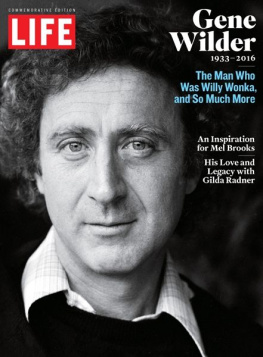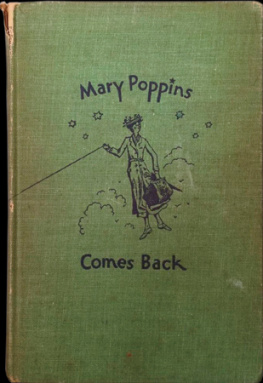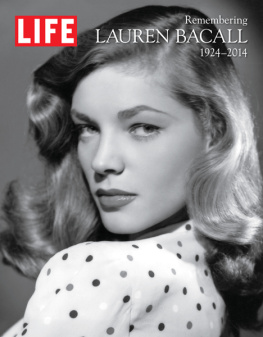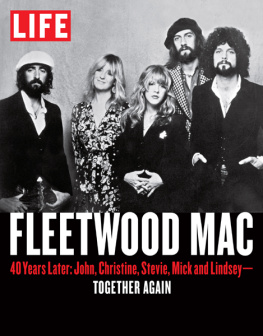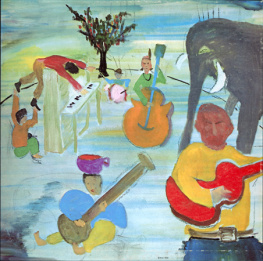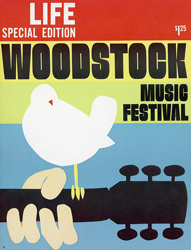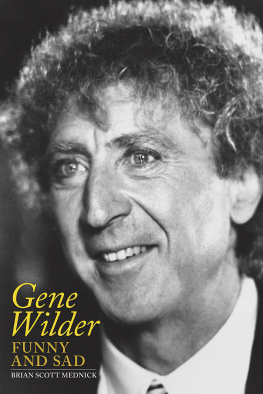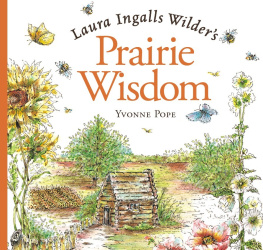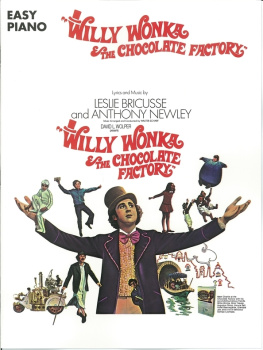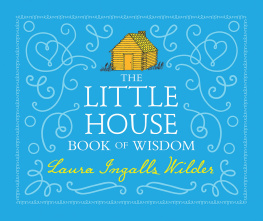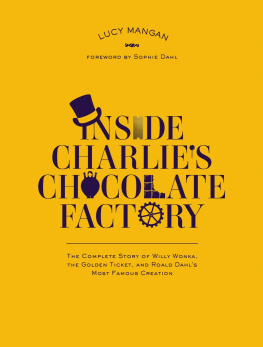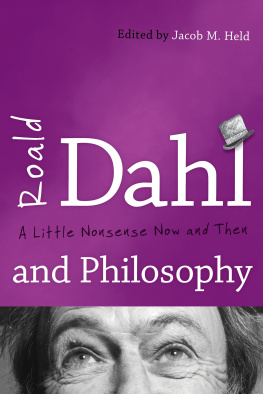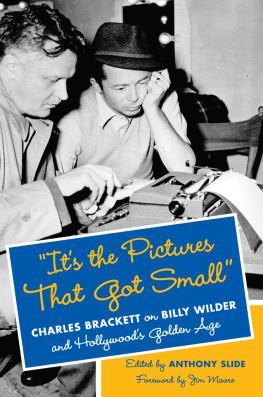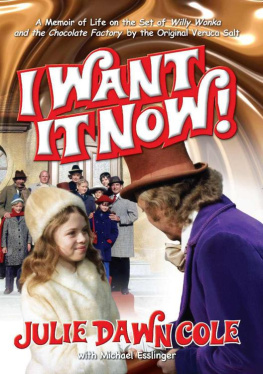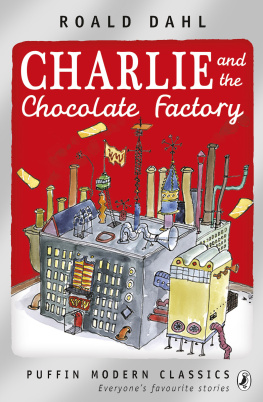
Gene Wilder
19332016

Contents
The Producers, Blazing Saddles, Young Frankenstein
FRONT COVER Gene Wilder, 1974. Photograph by Steve Schapiro/Corbis/Getty.
TITLE PAGE Gene Wilder in Willy Wonka & the Chocolate Factory, 1971. Photograph by Wolper/Warner Bros./Kobal/Art Resource, NY.

Wilder as Willy Wonka on his Wonkamobile, which ran on carbonated beverages. Photograph from Wolper/Warner Bros./Kobal/Art Resource, NY.
INTRODUCTION
Gene Wilder, A Critical Favorite
The comic actor reminded us that we all have feelings that surprise us
BY S TEPHANIE Z ACHAREK

STEVE WOOD/REX/SHUTTERSTOCK
WITH HIS FRIZZY BLOND hair and sometimes panicked voice, Gene Wilder, seen here in 1979, had all the makings of a truly kooky comedian. Im funny on camera sometimes. In life, once in awhile, he humbly told Larry King in 2002.
Comic madness is wonderful: To watch a character on television or in the movies blow his stack or flip his lid is a kind of safety valve for the stresses of everyday living. But its the people who seem accidentally funny who always get us the most, and that was Gene Wilders gift.
Wilder, who died on August 29 at age 83, hadnt had a major film or television role in more than 20 years. But his workparticularly that of the 1960s and 70shas not only endured with the people who saw it the first time around, but also resonates with younger audiences who are seeing it for the first time. Even in his nuttiest roles, Wilder always came off, first and foremost, as serene and sweet-natured, practically glowing with congeniality. But you could sense a subterranean stream of anxiety rushing quietly beneath. His greatness lay in the fact that he acted as if he had no clue it was there. And so when Wilder as Dr. Frankensteinin Mel Brookss 1974 movie, Young Frankenstein begs the gods to give his creation life, his loopy exhortations are like a hymn to craziness. Even at his most comically unhinged, he was beatific.
You could see that quality in role after role, particularly in the films Wilder made with Brooks: as the unintentionally successful showbiz accountant Leo Bloom in The Producers (1968), Wilder treated his characters neuroses as a precious thing, a hothouse flower to be carefully tended and nurtured. As the liquor-guzzling Waco Kid in Blazing Saddles (1974), he radiated an aura of dreamy regret, even if he seemed ready to blow.
But Wilder, as funny as he could be, was never too obvious. In his starring role in Willy Wonka & the Chocolate Factory (1971), he was the perfect steward of author Roald Dahls tricky mood and tone. His Willy Wonka was gentle and generous but also vaguely malevolent, though only if you were a child bent on misbehaving. And in his marvelous sequence in Woody Allens Everything You Always Wanted to Know About Sex But Were Afraid to Ask (1972), Wilder plays a doctor who attempts to treat a shepherd who has fallen tragically in love with his sheep, Daisy. Wilders Dr. Ross thinks the shepherd is nuts. Then he meets the sheep. And as he gazes at her woolly face, the sudden tender lovesickness that clouds his eyes is both hilarious and weirdly touching. Even playing a guy in love with a barnyard animal, Wilder could open a small window into the idea of human fragility, reminding us that we can all have feelings that surprise us. The moment is silly, wonderful, unsettling. Thats what a great comic actor can do. Stephanie Zacharek is the film critic for Time magazine.
A Put-Upon Everyman
BY C HRIS N ASHAWATY

ELISA LEONELLI/REX/SHUTTERSTOCK
IF THE PHYSICAL THING youre doing is funny, you dont have to act funny while doing it, Wilder wrote in his autobiography. That might have been the case in 1977 when he posed at home in his bathtub.
My analyst says acting is better than running naked in Central Park.
G ENE W ILDER
With a mop of untamed curls resting atop what appeared to be the kindly face of a mild-mannered Long Island dentist, Gene Wilder was one of Hollywoods stealthiest comedians for three decades. He was the consummate straight man who, beneath the surface, was as crookedand sharpas a corkscrew. On-screen, Wilder always seemed on the verge of a neurotic meltdown; a put-upon everyman pushed to his breaking point. The joy in watching him was charting the deepening shade of red on his face as it progressed from simmering crimson to boiling-over beet purple. He made hysteria hysterical.
Wilder held a special place in the hearts of fans, in part because so many discovered him young in Willy Wonka & the Chocolate Factory . Although the film was first released in 1971, it continues to resonate with children born long after the fact. Thanks to Wilders charming and volcanic performance as the hermetic, purple-clad confectioner with a sweet tooth for milk chocolate and mayhem, Willy Wonka has never gone out of style. Its a candy-coated classic with a message as enduring as one of his characters signature creations, the Everlasting Gobstopper.
After Wilders scene-stealing turn as a terrified undertaker being held hostage by Warren Beatty and Faye Dunaways on-the-lam lovers in 1967s Bonnie and Clyde, he landed a star-making role in Brookss laughing-gas satire, The Producers, opposite Zero Mostel. Together, they were the decades most frenzied Mutt & Jeff duo, the two pieces of a laugh-riot exclamation point. Any actor would have looked subtle standing next to a look-at-me ham like Mostel. But Wilder gave his nebbish accountant character, Leo Bloom, a hilariously high-strung humanityand in turn received a Best Supporting Actor nomination.
In 1976, Wilder found a new comedy partner in Richard Pryor. Over the next decade and a half, they would team up in four films of varying quality. The first two1976s Silver Streak and 1980s Stir Crazy are the ones worth checking out. Even if some of their broad, black-and-white stereotype gags havent aged particularly well, the two fit together hand-in-glove. Its as if each wrote the instruction manual on how to wind the other one up.
Since his Emmy-winning turn on Will & Grace in 20022003, Wilder had been largely absent from both the big and small screen. And its hard to know how much of that was due to his illness or the feeling that hed provided more than enough laughs for one careerthat hed earned his place in the history of comedy, why push it? Fortunately, we live in an age now when cinema lives forever and can be accessed and streamed into our living rooms at the touch of a button. Which, today, in the wake of his passing, may be the best way to pay tribute. Ill be starting with Young Frankenstein as soon as I walk in the door tonight. Chris Nashawaty is a film critic for Entertainment Weekly.
A Life in Pictures
Star turns full of sweet surprises defined an enchanting career

PARAMOUNT PICTURES, COURTESY PHOTOFEST
TIME TO MAKE THE chocolate! All smiles on the set of 1971s Willy Wonka & the Chocolate Factory, where Wilders Wonka enlisted an unusual group of creatures known as Oompa-Loompas to produce his candy. If youre not greedy, you will go far, they sang.
Next page
